- Home
- Roger Taylor
Whistler [A sequel to The Chronicles of Hawklan] Page 9
Whistler [A sequel to The Chronicles of Hawklan] Read online
Page 9
He had set great store by reason and would bring it to bear formidably on any problem foolish enough to cross his path, but he had been neither a bigot nor a proselytizer for his beliefs.
'You need to use your head all the time, lad. Knowledge is always your greatest protection.’ He would strike his chest. ‘But your faith's what you find in your heart. It's beyond reason and thus debate and it's to be held in silence, not prated from a pulpit. Most of these people use what they call faith as an excuse for straightforward lack of clear thinking. Laziness, that's all their faith is. Laziness. I've no time for it. It's blasphemous.’ It was a conclusion that used to make him laugh heartily.
His words still resounded about the room for Vredech.
It had been a source of disappointment to his father that his only son had turned to the church, and, unusually, there had been some unpleasantness about it at first. However, sure in the knowledge of what it was that he really valued, he had, in the end, stuck by his own creed, wished his son well, and supported him when he could, even through the doubts that must assail anyone following such a vocation. They had been friends up to the end and thus his support had continued after his death.
Resting now in the shade of his father, Vredech began talking to himself. It was a conscious aping of the old man. ‘Gets those tricky thoughts to the forefront of your mind, those little swine lurking about below the surface, getting ready to ambush you at some dire moment.'
'Cassraw's my friend. I don't think I'm jealous of him.’ Vredech said, dragging out his most reprehensible concern. He tapped the Santyth. ‘I certainly wouldn't have wanted the Haven Parish. Dowinne, maybe.’ He cast a look about him at this, even though he knew the house was empty. ‘I know he can be a pain, but more often than not it's he himself who really suffers. And I was glad to see him back safely off the mountain, for all he was ... odd.'
The black clouds loomed into his mind again.
Judgement Day.
Not right.
Not right.
Vredech swore and stood up. The sudden action made him giddy, and he sat down again, his head back in his hands. ‘Get hold of yourself, man,’ he muttered. ‘Relax. Take it easy for an hour or so. You've had a queer couple of days and a bad night.'
This reminder of the previous night only brought him upright and tense again, for where he should have slept deeply, following an afternoon's activity the like of which he had not known in many years, he had found himself wide awake, his body agitated and his mind tormented. He had twitched in and out of sleep repeatedly, for the most part unable to tell which was which, as memories of the day buffeted him relentlessly. Cassraw suddenly there beside him, strange, commanding—mesmeric almost—and now lying still and silent, yet somehow, Vredech sensed, alert and listening. And, terrifying, dancing black shadows that had brought with them that truly awful presence, searching into him, discarding him. Had it been real, or was it just some trick of the light and the circumstances that his body and senses had misunderstood? It had felt real enough, but where did that leave him? If it was real then what awful thing was it? And what had happened to Cassraw, who had presumably been nearer to the heart of it? And if it was not real, then what was the matter with him, that he should suffer such a vivid hallucination?
He leaned back in the chair, stretched out and closed his eyes, with the intention of ordering his thoughts once and for all. Almost immediately, he was back in the Debating Hall, with Cassraw staring at him across the long table—the old, familiar Cassraw. Waiting for his approval ... his support? And still there was a wrongness about the scene, though he could not identify it. A wrongness that slithered away from him tantalizingly, its very movement illuminating Cassraw's face with the jaundiced light that had emanated from the sinister black cloud under which all this strangeness had occurred. Indeed, Vredech saw, Cassraw's face was the light. And too, he was the cloud, vast and overwhelming, looming over the entire land and beyond, eyes penetrating, face marked with the arrogant indifference of supreme power. Vredech wanted to fall to his knees in mortal fear before this manifestation, for he knew that though he was insignificant beyond imagining, yet his every thought was known and understood, and he was deeply unworthy. Nothing could stand against such might, nothing be hidden from it. His obedience, his obeisance, was demanded. But he would not yield. It was an abomination; it had to be opposed. He wanted to cry out against it, raise his fist in defiance, however futile.
'You are but a man, Cassraw,’ he bellowed into the echoing vault. ‘Frail and flawed as are we all.'
Laughter came back to him, scornful and crazed. ‘Frail, old friend? Frail? God is come for me. Follow me or ...'
'Leave me,’ Vredech said.
'Follow me or die. Die and be doomed forever. I am the Judgement Day. All things are to be weighed. Mine is the new Word.'
Cassraw's face filled Vredech's vision.
He felt his chest tightening, his shoulders throbbing, as if the sky itself were pressing down on him.
'You're only a man,’ he gasped.
'You are the man.'
The face grew larger still, until it was but a single eye, its black iris like a huge, dead moon.
Vredech stared into it, scarcely able to breathe. Then, black against the blackness, an army of shadows was about him, wheeling and dancing, full of mocking, horrible sounds. He flailed his arms as if to fend them off but to no avail. They were there and not there. Inside and outside him. Growing. Growing. Louder and louder.
Then all was silence, terrible and total, as it had been on the mountain in that fearful moment before Cassraw had reappeared.
Vredech waited, his breath frozen within him.
A hand closed about his shoulder.
* * * *
Dowinne and Cassraw travelled back from the Witness House in one of the church carriages, Cassraw's own small trap being returned by one of the servants. Dowinne's pale blue eyes were fixed relentlessly on her husband, and her hands were twitching restlessly. Her shoulders were raised and tense. Cassraw, by contrast, was staring calmly out of the window, watching the valley scenery move slowly up and around them as the carriage descended the mountain road.
The sound of the wheels changed as they moved through the gates at the end of the road and turned on to the public highway. The change prompted Dowinne to speak.
'Well?’ she asked.
Without turning from his vigil, Cassraw raised a hand as if to fend off the question. Dowinne leaned forward and slapped it aside none too gently. Cassraw turned to her sharply, making her start, but she held his gaze.
'Well?’ she repeated, more insistently. His look became quizzical. ‘That's the second time you've done that,’ Dowinne said, as though answering an unspoken question. ‘And I didn't like it very much the first time. Now tell me what's been happening. Everything. Right away.'
As she drew a breath to continue, Cassraw smiled and raised his hand again. ‘When we get home,’ he said simply. The smile was captivating but his voice was an odd mixture of command and concession, and Dowinne's resolve faltered. ‘When we get home,’ he repeated.
'Very well,’ she said emptily, her brow furrowing as Cassraw turned again to stare out of the window. The carriage was travelling quite slowly now, not because they were moving up yet another of Troidmallos's many hills, but because they were passing through a part of the town that was dominated by the workshops, offices and warehouses of Canol Madreth's larger merchanting companies and the streets were very crowded. Apart from pedestrians and riders there were all manner of carriages and carts jostling for position in the wide streets: light traps used by the PlasHein messengers, ornate and dignified company carriages, jangling public carriages with their noisy drivers, and even some of the great six-horse wagons that hauled timber and cotton and kegs of oil and wine and all the other commodities that served Canol Madreth's trading needs. Cassraw's eyes moved leisurely over the scene. Occasionally, from amid the bustling crowds, a hand would be raised in greeting
which he acknowledged with an inclination of his head and a small but definite movement of his hand.
Briefly, Dowinne toyed with the idea of questioning him again, but she did not pursue it. Perhaps he just needed to clarify his own thoughts before he could tell her anything. Besides, she'd have plenty of time when they got home and she wouldn't have to be looking over her shoulder to assess the reactions of others if she had to deal with any obduracy on Cassraw's part.
As Cassraw quietly acknowledged another passer-by, Dowinne set aside both her concerns and her dudgeon and let the luxury of the carriage enfold her. For this journey at least she could enjoy being a distinguished foreign visitor, or some other civic worthy, powerful and respected. As her gaze followed her husband's, she noticed with pleasure many eyes turning towards the carriage. And, too, rippling through the crowds, there was a slight but conspicuous and steady rhythm of circling hands as people made the old sign of the ring over their hearts. Not all of them elderly by any means, she noted.
'Deep in our people, religion,’ Cassraw said, without turning. ‘Obedience to the old ways. Good.'
Uncertain to whom the remark was being addressed, Dowinne remained silent, content to bask in the imagined respect of the crowd and the very real comfort of the church carriage.
Then they were entering the part of the town which was the preferred residential district for people unburdened by concerns about money—the merchants, the Heinders, high-ranking civic and governmental officers and the plain rich—the Haven district. Great stone houses, built many storeys high and topped with steep pitched slate roofs in the Madren tradition, stood in imitation of the mountains around them. Some were ranked in impressive, curving rows, others stood isolated amid their own grounds. They would have dominated the streets and made them oppressive, had they not been widely spaced, with ample gardens or open areas around them, and had the streets themselves not been wide and airy. Dowinne looked at these monuments to conspicuous prosperity and felt a glow of pride. The Meeting House, lavish though it was in comparison to most Meeting Houses, did not begin to compare with houses such as these, and Cassraw and she did not possess the kind of wealth that they represented, but for all that, they were there, living in the Haven, tending the spiritual needs of the rich and powerful. Her thoughts echoed Cassraw's words. It was good.
Yet, just as the black clouds had appeared from nowhere to darken the land the previous day, so Dowinne's concerns returned to mar her pleasure and darken her thoughts. What had happened to Cassraw during his ‘little walk up the hill', as Mueran had called it? And what had possessed him to do such a thing? In the turmoil of her arrival at the Witness House she had not thought to question the Covenant Member about such things but, as she had sat helpless by Cassraw's motionless form through the night, fretting and at one stage almost praying, those and many other questions had come to her. And something had happened, beyond a doubt. For all his affability after he had suddenly woken, for all the peace he seemed to have made behind the closed doors of the Debating Hall, her husband was different. The good-natured, apologetic exterior that looked like the old Cassraw was only a mask, a shield. Behind it lay something very different.
'Come on.'
Cassraw's voice startled her. He was standing in the doorway of the carriage, his hand extended towards her.
'Come on. We're home,’ he said.
Catching sight of the carriage driver standing behind her husband, Dowinne quickly gathered her wits and smiled winningly. ‘Sorry, my dear,’ she said, taking the offered hand. ‘Just daydreaming.'
As the door of their living quarters closed behind them, however, the smile vanished instantly, to be replaced by a look of angry sternness. ‘Now,’ she demanded of her husband's retreating back. ‘Tell me everything that's been going on before you take a single step further.'
Cassraw stopped and turned. He stared at her intently. His face wore a strange expression and, for a moment, Dowinne was afraid. She had always known that violence bubbled just beneath the surface of her husband, but she had known too that it was well-harnessed, and that his various passions were, at least in part, a release for it. But she was no prey animal. She knew that to flinch was to bring down on her the very thing of which she was afraid. And if the worst came to the worst, she knew also that her own nature was not without its savage streak.
'When you've quite finished gazing at me, Enryc,’ she said coldly, ‘perhaps you'll answer my question. Tell me, for mercy's sake, what's been going on. I get dragged up to the Witness House at a moment's notice to find you ...’ she waved her arms about vaguely. ‘... asleep, unconscious, I don't know what. Your clothes ruined, you cut and bruised. Mueran babbling on about how you'd gone for a walk and “had a fall", Morem trying to be reassuring and failing dismally. And both of them lying about whatever had happened.’ She paused, but as Cassraw made no effort to reply she continued almost immediately. Laying a hand on his arm, she softened her manner. ‘I've never had such a night. You frightened me half to death. I didn't know what to do, except sit there and hold your hand and hope.'
'And pray,’ Cassraw prompted, unexpectedly reproving. ‘Pray for His mercy to guide you through your trial.'
'Oh yes,’ Dowinne heard herself replying. ‘Of course. And pray. That goes without saying.'
Her mind was suddenly racing. Never in all their time together had Cassraw made such a remark to her and it caught her badly off-balance. She knew what was expected of her as the wife of a Preaching Brother, and she observed the forms of Ishrythan not only meticulously, but sometimes more knowledgeably than her husband. Having been brought up in a strictly orthodox family she had behaved thus all her life and it was little trouble. But actually believing! That was surely for children and the weak-minded? Noting quite early in life that hypocrisy was far from uncommon and that no one ever really seemed to be punished for their misdeeds unless they were caught by some human agency, Dowinne had long assumed that the image of the stern and forbidding Ishryth that dominated the religion was just another means of political control. She had taken it for granted that Cassraw thought as she did and that his choice of the church had been purely a means towards gaining wealth and power. It had necessarily been a tacit assumption, however. As her childish awareness had grown she had learned too, that such topics were not for open discussion. Total immersion in her chosen role was essential, and the least crack in her shield could be the presager of catastrophe.
Had she been wrong all this time? Had Cassraw's protestations of faith, his passionate sermons, all been sincere? The past few months came into a new focus. She had presumed, or, more correctly, hoped, that Cassraw's increasingly primitive preaching was part of some scheme he was hatching to win further popular support for himself within the church. She had not attempted to discuss it with him as she knew he preferred to develop his ideas fully before he brought them to her. In her worst fears she had imagined that he was overworking, but Cassraw was a strong, tireless individual, not given to many forms of physical weakness. Now it seemed as though she might well have been wrong. The prospect chilled her and, for the second time in two days, she felt the entire edifice of her life tremble. Sensing the blood draining from her face, she turned away quickly and began unfastening her cloak. She desperately needed a moment to compose herself.
It didn't matter, she decided frantically. It wasn't that important. If she'd been wrong, she'd been wrong, that was all. It didn't really alter anything. She would just have to be even more careful to keep her shield about her.
Yet, she couldn't have been so wrong, surely? It wasn't possible that she'd misread the man for so long.
Something had happened up that damned hill. And she needed to know what, more than ever now.
She had come full circle. On firmer ground again, her composure returned. Folding her cloak carefully and laying it delicately over the back of a chair, she confronted her husband.
'Well?’ she asked.
'Well what?'
'What
happened?’ Dowinne allowed herself a note of exasperation.
'Your prayers were answered,’ Cassraw replied, without an inkling of humour. ‘I returned.'
Dowinne put her hands to her head. ‘But what happened?’ she demanded again. ‘Why did you suddenly decide to go wandering about the mountainside in the middle of a Chapter meeting? And into that storm, of all things. And where did you fall, and why, and who found you, and what were they doing looking for ...'
'Enough, Dowinne,’ Cassraw interrupted, raising both hands as if to fend her off. ‘So many questions.’ He put an arm around her shoulders and moved her across to a seat by the window.
'Speak to her,’ the voice within him said. ‘As you know how. She is too strong to oppose and too valuable to dispense with. She will be your right hand, as you are Mine.'
The words chimed with Cassraw's own thoughts.
He smiled. Dowinne had not seen him smile like that for a long time. ‘Curb your impatience, my dear,’ he said. ‘I'll tell you everything as soon as I've got it completely clear in my own mind.’ Dowinne made to speak but his hand gently silenced her. Then he turned away from her and looked out of the window as if he were afraid to meet her gaze.
'As you may have guessed, these last few months have been ... difficult,’ he began. ‘Much about the church has been troubling me.’ His hand fell to the pocket in which he kept his familiar copy of the Santyth, and he patted it reassuringly. ‘But I went about seeking answers the wrong way. Offended people with whom I should be friends, turned people against me who should be my allies, showed disrespect to the Covenant Member ...’ He shook his head. ‘All bad things. Serious misjudgements. I won't excuse them.’ He looked earnestly into Dowinne's eyes. ‘But it's all behind me now. Something ... wonderful ... happened to me yesterday.’ He raised his hand again in anticipation of further questioning. ‘I can't tell you what, not yet—the time's not right. I'll have to ask you to trust me.’ His face became alive with excitement. ‘But great changes are coming, Dowinne. And I ... we ... will be riding them. Riding them on into a new era, one in which His Word will reign supreme, in which Canol Madreth will be again the centre of a Gyronlandt united within the church.'

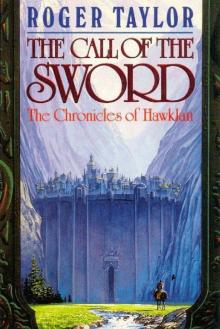 The call of the sword tcoh-1
The call of the sword tcoh-1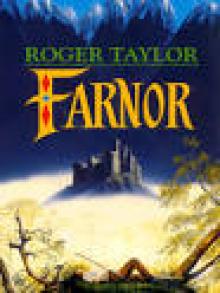 Farnor
Farnor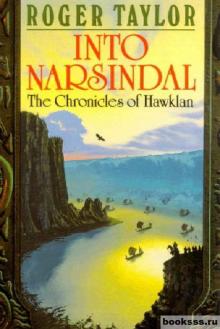 Into Narsindal
Into Narsindal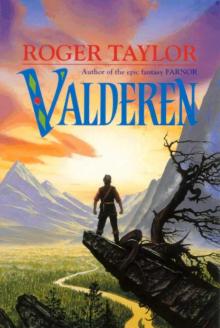 Valderen ft-2
Valderen ft-2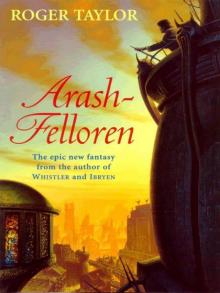 Arash-Felloren
Arash-Felloren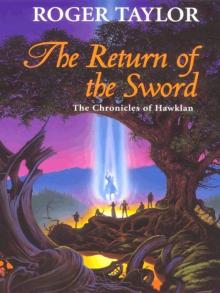 The Return of the Sword tcoh-5
The Return of the Sword tcoh-5![Ibryen [A sequel to the Chronicles of Hawklan] Read online](http://i1.bookreadfree.com/i1/03/26/ibryen_a_sequel_to_the_chronicles_of_hawklan_preview.jpg) Ibryen [A sequel to the Chronicles of Hawklan]
Ibryen [A sequel to the Chronicles of Hawklan]![The Call of the Sword [Book One of The Chronicles of Hawklan] Read online](http://i1.bookreadfree.com/i/03/24/the_call_of_the_sword_book_one_of_the_chronicles_of_hawklan_preview.jpg) The Call of the Sword [Book One of The Chronicles of Hawklan]
The Call of the Sword [Book One of The Chronicles of Hawklan]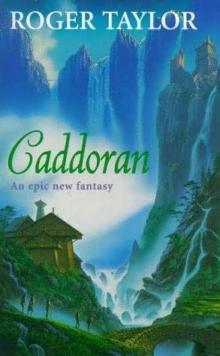 Caddoran
Caddoran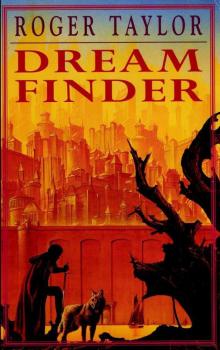 Dream Finder
Dream Finder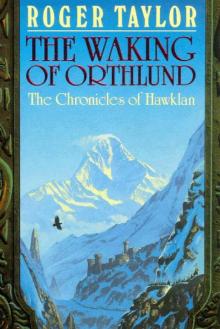 The Waking of Orthlund
The Waking of Orthlund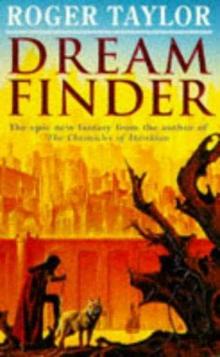 Dream Finder cohs-1
Dream Finder cohs-1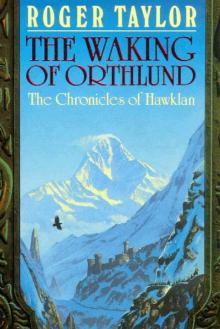 The waking of Orthlund tcoh-3
The waking of Orthlund tcoh-3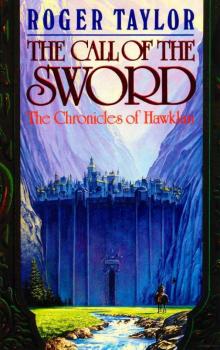 The Call of the Sword
The Call of the Sword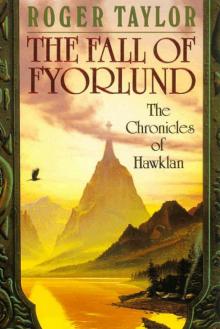 The fall of Fyorlund tcoh-2
The fall of Fyorlund tcoh-2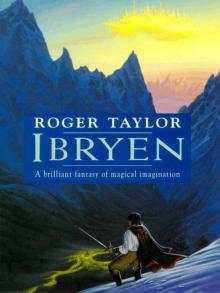 Ibryen
Ibryen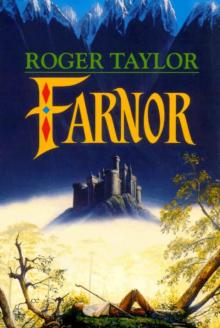 Farnor ft-1
Farnor ft-1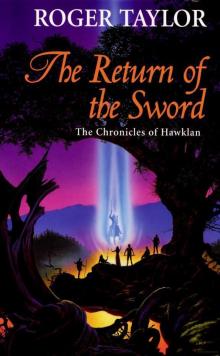 The Return of the Sword
The Return of the Sword![Into Narsindal [Book Four of The Chronicles of Hawklan] Read online](http://i1.bookreadfree.com/i2/04/06/into_narsindal_book_four_of_the_chronicles_of_hawklan_preview.jpg) Into Narsindal [Book Four of The Chronicles of Hawklan]
Into Narsindal [Book Four of The Chronicles of Hawklan]![Valderen [The Second Part of Farnor's Tale] Read online](http://i1.bookreadfree.com/i2/04/05/valderen_the_second_part_of_farnors_tale_preview.jpg) Valderen [The Second Part of Farnor's Tale]
Valderen [The Second Part of Farnor's Tale]![The Fall of Fyorlund [Book Two of The Chronicles of Hawklan] Read online](http://i1.bookreadfree.com/i2/04/08/the_fall_of_fyorlund_book_two_of_the_chronicles_of_hawklan_preview.jpg) The Fall of Fyorlund [Book Two of The Chronicles of Hawklan]
The Fall of Fyorlund [Book Two of The Chronicles of Hawklan]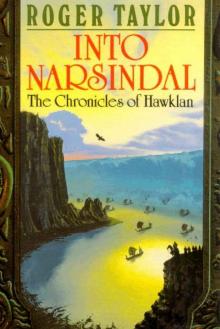 Into Narsindal tcoh-4
Into Narsindal tcoh-4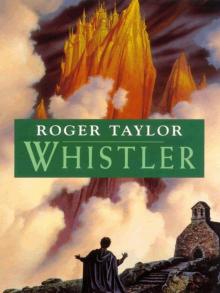 Whistler
Whistler![Whistler [A sequel to The Chronicles of Hawklan] Read online](http://i1.bookreadfree.com/i2/04/12/whistler_a_sequel_to_the_chronicles_of_hawklan_preview.jpg) Whistler [A sequel to The Chronicles of Hawklan]
Whistler [A sequel to The Chronicles of Hawklan]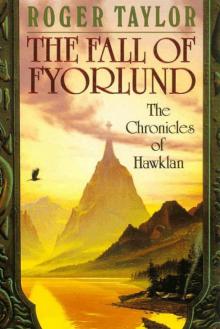 The Fall of Fyorlund
The Fall of Fyorlund![The Waking of Orthlund [Book Three of The Chronicles of Hawklan] Read online](http://i1.bookreadfree.com/i2/04/11/the_waking_of_orthlund_book_three_of_the_chronicles_of_hawklan_preview.jpg) The Waking of Orthlund [Book Three of The Chronicles of Hawklan]
The Waking of Orthlund [Book Three of The Chronicles of Hawklan]